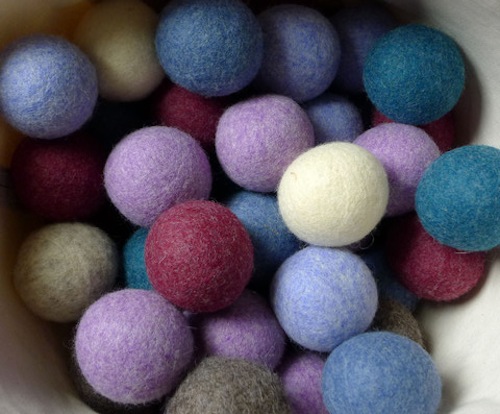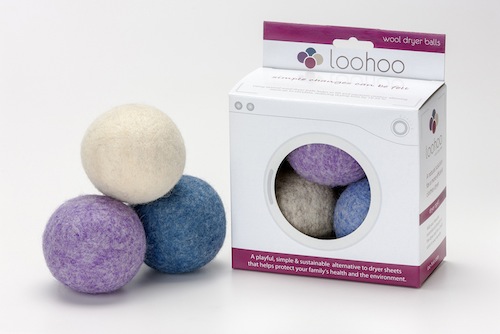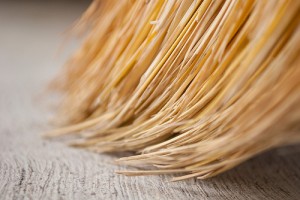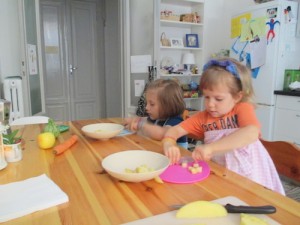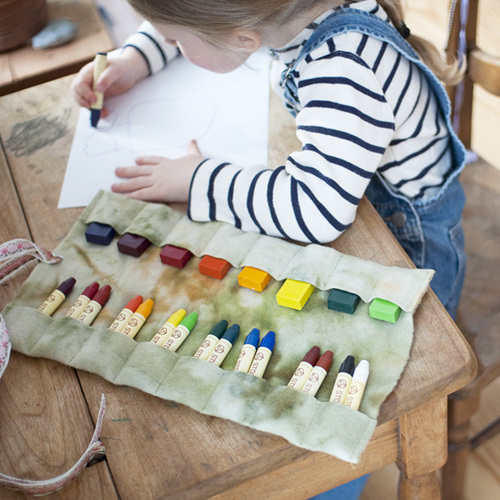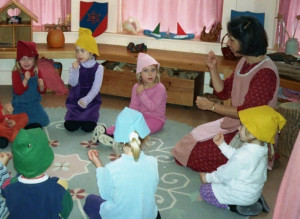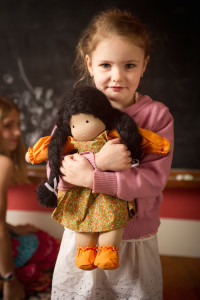Have you ever put wool felt balls in your dryer?
No? Well then today I’d like to introduce you to my friend Cyndi Prince.
Cyndi and I have a lot in common—we live in the same community in midcoast Maine, and we are both mothers and business owners aiming to provide healthy, natural, and chemical-free products for children and families.
Cyndi is the founder of a great company called LooHoo that produces wool felt dryer balls here in Maine. She formed the business shortly after the birth of her son, having learned about the harmful effects of the chemicals in dryer sheets and fabric softeners.
Wool dryer balls are a natural alternative that soften clothes safely and really speed up the drying time of large loads of laundry, including cloth diapers. Cyndi has produced her dryer balls in a beautiful variety of hues that brighten up the task of doing laundry and make it more fun!
The inspiration to create LooHoo grew out of Cyndi’s creative passions (she is also a photographer), and her desire to create a consistently high quality wool dryer ball from local resources, durable enough to last for hundreds of loads.
While I love to hang my clothes on the line, it’s hard to do during the long Maine winters. That’s when I rely on my dryer more. I started out using three LooHoo balls a couple of years ago, and now have six in my dryer. I can attest that they really do speed up drying time, which in turn cuts down on our electric bill and reduces our carbon footprint.
Being the fan that I am of LooHoo, I was delighted when Cyndi generously offered to give away a Deluxe Starter 3-Pack to three readers of Moon Child!
For today’s giveaway, LooHoo is pleased to offer the following gift to THREE winners:
A Deluxe Starter 3-Pack of LooHoo Wool Dryer Balls
The set comes in an attractive box, making it a perfect gift for a green mama. (LooHoo felt balls are also fun toys and great for juggling!)
Each prize (a $27.99 value) includes free shipping within the 48 contiguous United States. The giveaway is open to all readers, but a winner outside the continental U.S. will be responsible for the cost of shipping.
To enter the giveaway, simply leave a comment on this post letting me know what you think of this product. For additional entries, share on Facebook, Twitter, Pinterest, or on your own blog, and leave a separate comment for each action taken.
Comments will close at 11:59 p.m. PDT on Saturday, November 30. Three winners will be chosen by Random Number Generator and announced on Sunday morning, December 1.
. . . . . . . . . . . . . . . . . . . . . . . . . . . . . .
In addition, Cyndi would like to offer Moon Child readers 20% off their first purchase at loo-hoo.com through December 1, 2013. To receive the discount, enter the code BellaLuna20 into the discount code field at checkout. Thank you, Cyndi!
Leave your comment here to enter and let me know what you think!
Comments are now closed. Many thanks to all who entered.
Here are our three winners, chosen by Random Number Generator:
#1 ANANDAH, who wrote: “I would love to try these balls. I recently felted an 8 eight inch ball with a felting needle. The ball was the head of a millet baby I made for my son’s Waldorf school. The first millet baby I’ve ever made!”
#2 MELISSA, who wrote: “I’ve been wanting dryer balls for a long time and these look fantastic. The colors are also very calming.”
#3 THERESA, who wrote: “These seem great! Would love to try them.”
Congratulations! Cyndi will get your LooHoo Dryer Balls shipped right off to you. Hope you’ll report back and let us know what you think.
And don’t forget, the coupon code above is good at loohoo.com through the end of the day!

